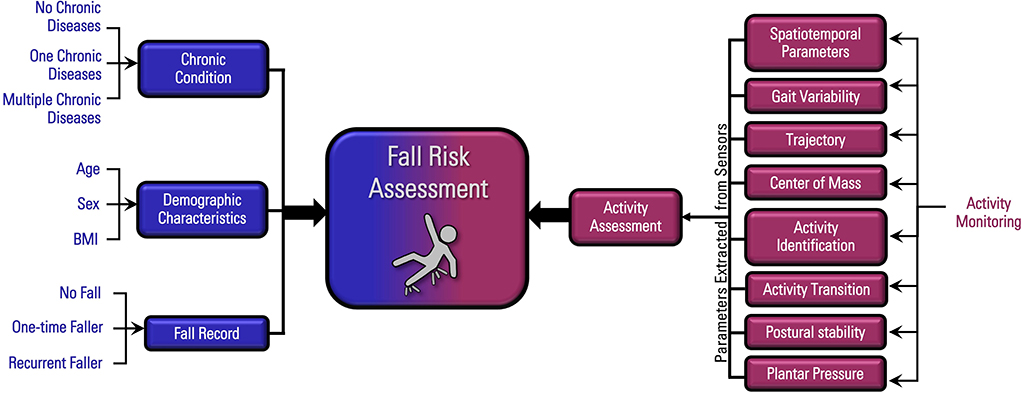A Biased View of Dementia Fall Risk
A Biased View of Dementia Fall Risk
Blog Article
Little Known Questions About Dementia Fall Risk.
Table of Contents3 Simple Techniques For Dementia Fall RiskOur Dementia Fall Risk DiariesMore About Dementia Fall RiskThe Ultimate Guide To Dementia Fall RiskDementia Fall Risk - The Facts
You might be worried because you've had a loss before or because you've noticed you're starting to feel unsteady on your feet. You might have seen adjustments to your health, or just seem like you're reducing down a little. Whatever the factor, it isn't unusual to end up being mindful and shed self-confidence, and this can stop you doing the important things you utilized to do and make you feel a lot more isolated.If you have actually had an autumn or you have actually started to really feel unstable, tell your doctor also if you feel fine otherwise. Your physician can inspect your equilibrium and the way you walk to see if improvements can be made. They might be able to refer you for a falls threat evaluation or to the drops prevention solution.
This information can be gotten with interviews with the individual, their caretakers, and an evaluation of their medical documents. Begin by asking the private about their history of falls, including the regularity and circumstances of any type of current drops. Dementia Fall Risk. Inquire about any flexibility problems they may experience, such as unsteady or difficulty strolling
Conduct a complete testimonial of the individual's drugs, paying specific focus to those known to raise the threat of falls, such as sedatives or medications that lower blood pressure. Figure out if they are taking numerous medicines or if there have been current changes in their drug regimen. Assess the person's home atmosphere for possible threats that can increase the threat of drops, such as inadequate illumination, loose carpets, or lack of grab bars in the bathroom.
Dementia Fall Risk Can Be Fun For Everyone
Overview the person with the fall threat assessment form, explaining each concern and recording their reactions properly. Determine the overall risk score based on the reactions offered in the analysis form.
This strategy might consist of exercise programs to enhance strength and balance, medicine changes, home adjustments, and references to other specialists as required. Frequently monitor the individual's progression and reassess their danger of falls as required. Customize the treatment plan based on adjustments in their wellness condition or home setting. Offer continuous education and learning and assistance to advertise safety and minimize the risk of helpful site falls in their daily living tasks.
Lots of research studies have shown that physical therapy can help to lower the danger of falling in grownups ages 65 and older. In a brand-new study (that checked out falls threat in females ages 80 and older), scientists computed the financial effect of choosing physical therapy to avoid falls, and they discovered that doing so conserves $2,144, including all the covert costs of your time, pain, missed out on life events, and the dollars spent for solutions.
What Does Dementia Fall Risk Mean?
Evaluating your balance, toughness, and strolling capacity. A home security analysis. Based on the assessment results, your physical therapist will certainly design a plan that is tailored to your certain demands.
Older adults who have trouble strolling and speaking at the same time go to a higher risk of dropping. Dementia Fall Risk. To help increase your safety during day-to-day tasks, your physiotherapist might make a training navigate to these guys program that will test you to maintain standing and strolling while you do an additional task. Instances include walking or standing while counting backwards, having a discussion, or bring a bag of grocery stores
Your physical specialist also can identify which activities you need to stay clear of to remain secure. Community-based falls avoidance programs assist people to: Minimize their worry of falling. Set objectives for boosting their exercise. Make their homes more secure. Work out much more to raise their toughness and balance. These programs frequently are led by volunteer coaches.
The Single Strategy To Use For Dementia Fall Risk

Measles, or rubeola, is a very transmittable, severe viral transmittable illness brought on by the measles virus. Some individuals think of measles as just a breakout and high temperature that cleans up in a few days; however, measles can trigger severe health problems, specifically in youngsters more youthful than 5-years-old. The most effective security against measles is the measles, mumps, and rubella (MMR) injection.
Falls are a common reason of injury among older adults.
Dementia Fall Risk Things To Know Before You Buy

She has a case history of seizure condition and high blood pressure. She is receiving an IV infusion and taking Gabapentin and Lasix. She has no background of drops, her stride is steady, and she nullifies without any issues. The previous registered nurse states that she calls for help to the restroom when she needs to go.
Examples of typical fall interventions/measures include: Guaranteeing an individual's crucial products are within reach. Past recognizing exactly how to use the Johns Hopkins Fall Threat Analysis Device, it's important that facilities integrate its use right into a much more thorough fall avoidance plan.
Report this page